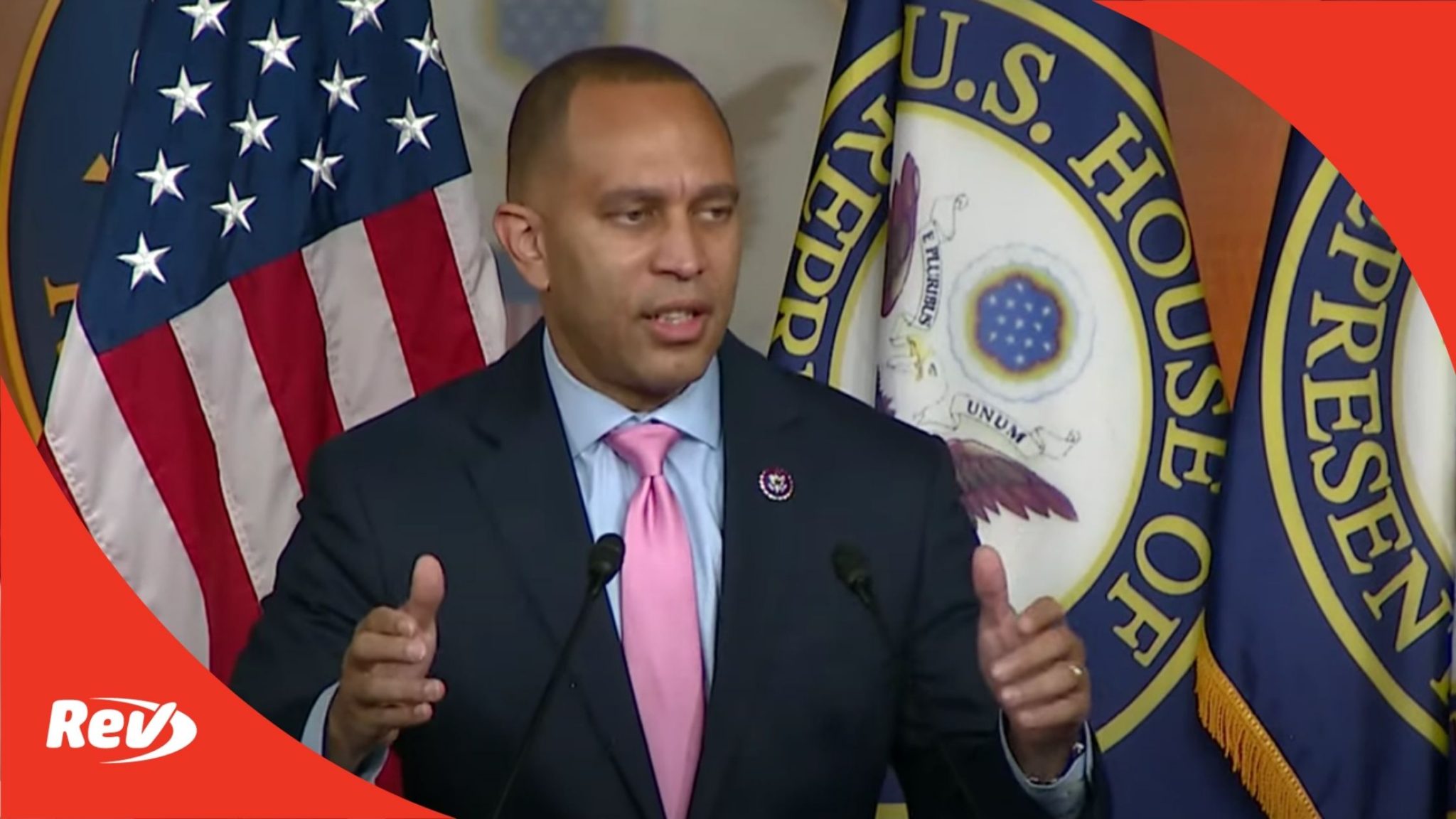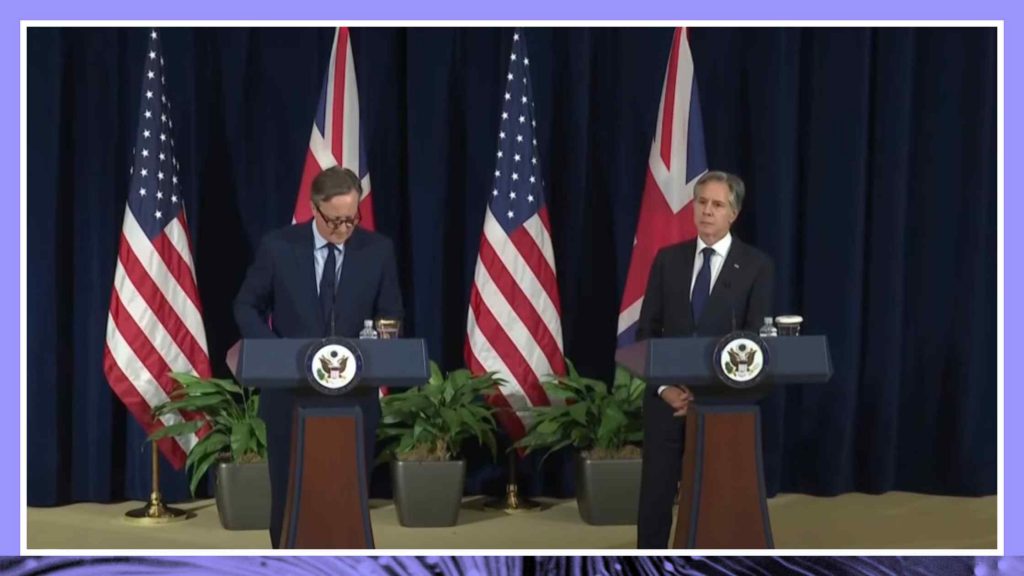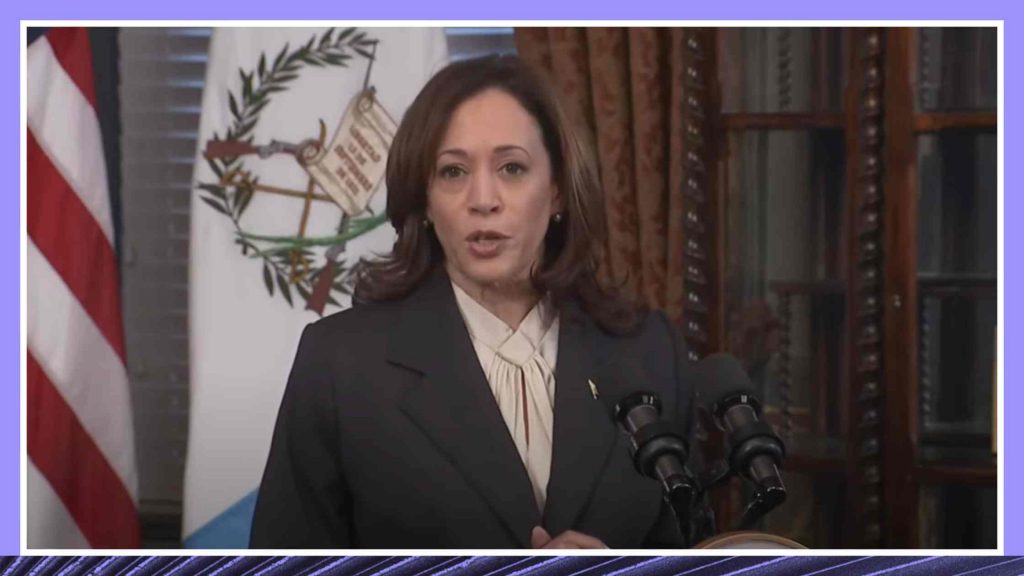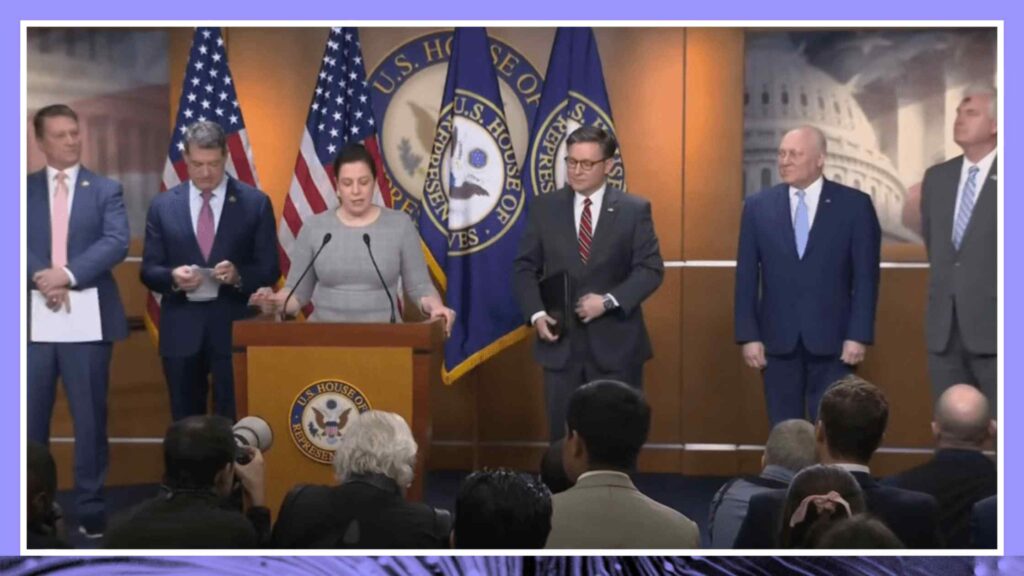Oct 26, 2021
House Democrats Weekly Press Conference Transcript October 26

House Democrats Hakeem Jeffries and Pete Aguilar held a press conference on October 26, 2021. They discussed negotiations on the Build Back Better infrastructure agenda. Read the transcript of the briefing here.
Transcribe Your Own Content
Try Rev and save time transcribing, captioning, and subtitling.
Chairman Jeffries: (00:00)
In the 1960s, as America was trying to create a more just and fair and equitable society, President Johnson and democratic majorities in the House and in the Senate delivered important civil rights legislation to address Jim Crow and elevate the right to vote, as well as put into place many different policies connected to the Great Society in order to create a more inclusive society. We had the New Deal era. We had the Great Society, Civil Rights era. We are on the verge of delivering the Build Back Better era, and we’re closer than we’ve ever been.
Chairman Jeffries: (00:55)
President Biden promised that we were going to lift up everyday Americans, not simply return to pre pandemic normal. And that is what the bipartisan infrastructure agreement and the Build Back Better Act will deliver. Overall as Democrats, we’re focused on dealing with three top line issues: crushing the virus, strengthening the economy for everyday Americans by building back better, and of course, defending our democracy. Over the next few days, over the next week or so, we will deliver on that important promise to build back better. We’re thankful for the leadership of President Biden, the conversations that he has been having. Everything continues to move in a very positive direction, and we’re hopeful and we’re optimistic about the prospects of delivering something historic, transformative, and bigger than one could possibly have imagined on behalf of everyday Americans. I yield to the Vice Chair, Pete Aguilar.
Pete Aguilar: (02:21)
Thank you, Mr. Chairman. We’re on the verge, and have a chance to deliver one of the central promises that the president made for his vision for this country, a generational investment, as the chairman mentioned, in the American infrastructure in a bipartisan way that’ll bring tangible and positive change to communities like mine. Passing this bill and improving and upgrading our infrastructure, our roads and bridges, and transitioning to cleaner emissions is the right thing to do and will create thousands of good paying jobs. The greatest country in the world should have a modern, reliable infrastructure to sustain economic development and make life easier for working people. It means investing in our traffic, by reducing our traffic by investing in public transit and it means reducing emissions by expanding access to electric vehicles and ensuring that we have a cleaner economy.
Pete Aguilar: (03:18)
As we work to pass this bipartisan infrastructure bill, negotiations continue for the Build Back Better agenda, and these bills together will represent a significant investment in the American people that we haven’t seen in decades. This is about making sure, as the chairman mentioned, that we grow our middle class economy and that we make sure that we lift families out of poverty and make life better for everyday Americans. I’m excited with my colleagues to work through these issues and to make sure that we get this done for the American people. With that, the chairman will take all your tough questions.
Chairman Jeffries: (03:55)
In the back.
Speaker 3: (03:57)
The Senate is pushing for a billionaire so they can pay for the reconciliation bill. The House supports and voted on a millionaire surtax to pay. Do you have a preference for one or the other, and do you even need the revenue?
Chairman Jeffries: (04:13)
Well, President Biden promised two things. One, that no American who’s making less than $400,000 will pay a dime in increased taxes. He’s going to keep that promise. We’re going to keep that promise. He also indicated that the wealthy and the well off and the well connected should pay their fair share. The Ways and Means Committee did a tremendous job in laying out a variety of different options in order to raise the revenue necessary to meet those two promises and ensure that, unlike the GOP tax scam, which was a $5 trillion bill for the wealthy, the well off, and the well connected, 83% of the benefits went to the wealthiest 1%. $2 trillion of that 5 trillion GOP tax scam was not paid for, and has resulted in increased debt for the American people, for our children and grandchildren. Unlike the GOP tax scam, the Build Back Better Act and the bipartisan infrastructure agreement will be completely a paid for. It won’t cost everyday Americans a dime in additional taxes. That’s the framework we’re operating under.
Chairman Jeffries: (05:40)
In that context, the billionaires tax is a recently introduced addition. It’s worthy of consideration. We haven’t seen legislative language. In order to understand how much revenue it will raise, we have to see legislative language, so it can be appropriately evaluated. Hopefully that will be forthcoming from the Senate sometime soon.
Speaker 4: (06:04)
Right now, the Helms and Hyde Amendment are not included in the reconciliation bill, yet democratic Senator Joe Manchin says that it’s a non-starter. Is this something that the House would consider putting into the bill as an amendment?
Chairman Jeffries: (06:16)
We haven’t had a conversation about that. Nothing is agreed upon until everything is agreed upon. We’ll see what the final agreement looks like.
Speaker 4: (06:24)
Mr. Chairman-
Chairman Jeffries: (06:25)
I’ll go back on this side. Yeah.
Speaker 5: (06:26)
With all due respect, how can you compare a series of very short term programs, one to three years, with the Great Society or the New Deal, which created programs that we still enjoy today?
Chairman Jeffries: (06:43)
We don’t envision any of these programs being short-lived if they are lifting up the American people. Let’s talk about what we’re focused on in terms of the Build Back Better Act, and in partnership with the bipartisan infrastructure agreement. The largest single federal investment in infrastructure in the history of the Republic, not this year, not this decade, not this century, the history of Republic. That alone should be transformative. That’s going to happen under President Biden’s leadership. That’s building back better in a transformative and historic way, full stop. But that’s not the end of the story, even though that infrastructure agreement is going to create million of good paying jobs.
Chairman Jeffries: (07:43)
And then if you partner that with the Build Back Better Act, which is going to strengthen the Affordable Care Act, expand access to high quality affordable healthcare in the United States of America, give us the ability to negotiate lower drug prices for everyday Americans, which we’ve been fighting for for a long period of time and should be part of the Build Back Better Act, that’s going to drop prescription drug prices for our seniors and for Americans who right now pay more for lifesaving drugs than any other developed country in the world for the same drug manufactured in the same location. I think that’s transformative and historic, but it doesn’t end there.
Chairman Jeffries: (08:33)
We also are working on expanding access to Medicaid for every single eligible American, despite the fact that you have 10 or 11 red states that have intentionally excluded seniors, the poor, the sick and the afflicted. I think that’s a little bit transformative, but it doesn’t end there. We’re looking at expanding access to Medicare benefits in some way, shape or form in a way that people have been contemplating for decades, but have not been able to accomplish, yet it doesn’t end there.
Chairman Jeffries: (09:14)
We’re also are talking about strengthening families and children, not just low income families, but working families and middle class families. How are we doing that? The enhanced and expanded child tax credit, which has lifted already in a few months, almost half the American children out of poverty and has provided additional assistance to working families and middle class families to pay for things like their utility bills or childcare costs or educational expenses or food or housing, but it doesn’t end there. We’re also joining the family of nations that currently provide childcare in a robust way. We don’t do it in America. The Build Back Better Act will do it for the first time in American history. Temporarily, we did some things during World War II. This would be something that we can put into place, setting us on a permanent trajectory.
Chairman Jeffries: (10:27)
It doesn’t end there. We’re going to expand access to three and four year old children across America through universal pre-K, which the academic literature is very clear, lays a foundation for children to grow up and be successful in pursuing the American dream. It doesn’t end there. We’ll probably spend $190 billion to strengthen home healthcare in America, access to it for those loved ones of American families who are sick and afflicted, and we’re going to lift up the home healthcare workers as well. But it doesn’t end there. We’re going to confront the climate crisis with the fierce urgency of now. There is no planet B. The largest federal investment in addressing the climate crisis in American history, I think that’s a little bit transformative, but it doesn’t even end there. We’re going to spend and invest over $100 billion in the creation and preservation of affordable housing, including the largest federal investment in lifting up public housing in the history of the Republic. I think that’s transformative and historic.
Speaker 6: (11:59)
Thank you. Good morning. On this proposal for the wealth tax, I know we don’t have specifics, or even if this is going to be part of the proposal here, but since it appears that the Democrats have had to pare back some of these other proposals, vision, dental, paid family leave, et cetera here, why should we not believe that this is just something that you’re throwing to the left, who pushed for taxing the ultra wealthy. And if you can’t get some of these other things, throwing this in at the last minute isn’t something that you’re giving to them who appealed for that push to tax the wealthy.
Chairman Jeffries: (12:29)
We’re not making decisions based on what the moderates want, what the left wants, what the center wants. We’re making decisions based on what is good for the American people. How do we create millions of good paying jobs in the context of healthcare? How do we expand access to high quality affordable healthcare? And of course, dealing with the climate crisis and strengthening America’s children and families. These are how decisions are being made. What is in the best interest of everyday Americans?
Speaker 7: (13:02)
Chairman-
Chairman Jeffries: (13:03)
Let me go to the back and then I’ll go right to you in the front here.
Speaker 8: (13:08)
Thank you. This bill, as you had mentioned, is designed to tackle climate change, which of course is exacerbated by human activity, and it also provides the child tax credit, which provides new incentives for people to have children. I’m wondering if you’re worried long term if there are concerns that the package in its totality is encouraging population growth, which would then worsen the climate crisis.
Chairman Jeffries: (13:31)
Well, it’s not something that I’ve contemplated in terms of the interactivity between population growth and the climate crisis. I mean, I think a broad and increasing coalition of Americans, not just Democrats or progressives, sees the need to address the climate crisis with the fierce urgency of now. The military under the last three different presidential administrations has been very clear that the climate crisis is perhaps the most significant national security issue that we need to address because of famine and drought and the challenges that are caused by population shifts in migration. I think everything that we’re doing in the context of the Build Back Better Act addressing the climate crisis in a sustainable, resilient and green fashion are all incredibly positive for the country and for the planet.
Speaker 7: (14:34)
Thank you, Mr. Chairman. A two-part question, if I may. The Medicaid expansion concerns in the Senate, how do you write that provision so it doesn’t reward red state who refuse to expand? And secondly, on paid leave, could you live with this bill if that provision has to come out to make the numbers work?
Chairman Jeffries: (14:50)
Well, let me yield to Pete, who’s of course one of our appropriators, in addition to being the vice chair. I think all of these issues are on the table. We’re working through them. We’re a coalition. We’re not a cult. We have people who have different perspectives. All of those perspectives are being heard and respected. And at the end of the day, I think we will land in a manner that brings everyone along and we achieve the highest common denominator.
Pete Aguilar: (15:22)
Yeah. With respect to paid family leave, the chairman and the speaker have encouraged the caucus not to draw red lines. We’re having these conversations. This is going to be a transformative package, and no matter what is included or what details or the number of weeks that are included, so we’re going to continue to have those conversations and then see what the package holds. With respect to Medicaid expansion, this is something that’s important to help the people in this country. So we don’t need to look at this as whether they’re in blue states or red states or expansion states or non expansion states. This is about what policies we can enact to help those individuals across the country who don’t have healthcare, who are poor, who are having difficulty and can’t afford their medical expenses.
Pete Aguilar: (16:11)
Those are the policies that we’re looking to enact and that we’re looking to change to help the people in our communities and throughout this country. That’s what we’re focused on, is how can we look at this, take the ACA expansion to the next level, and focus across the country on what’s best for kids, what’s best for our communities, what’s best for those folks who meet the threshold of Medicaid, so we can provide them the healthcare services that they need.
Speaker 7: (16:43)
Just to be clear, paid leave is down to number of weeks, not whether it’s in or out entirely?
Pete Aguilar: (16:47)
Well, I’ve read the reporting that’s talked about it going down. We’re going to continue to allow the space of the negotiators to have those conversations, and we’ll see. As the speaker said, 90% of this is not just agreed to, but it’s written, and that’s an important component. So the remaining details, the caucus will get read out on when it’s appropriate.
Chairman Jeffries: (17:15)
Is there someone on this side, or … Okay.
Speaker 9: (17:17)
Thank you, Mr. Chairman. As you’ve acknowledged, a billionaires tax is just one of the many things the House is now considering as a revenue source. In that discussion, is a constitutional challenge also being discussed as something that might even delay implementation of the bill or just cause any other complications?
Chairman Jeffries: (17:39)
Well, the billionaires tax was briefly discussed in the caucus meeting earlier today. No one raised the issue of a constitutional challenge. We are clear that we need to still consider a range of revenue opportunities and that corporate America shouldn’t be left, or let off the hook. If you recall that when the GOP tax scam was put into place, initially the rates were at 35%, and corporate America came to the Hill and said, “We need to be more competitive internationally. And if you can get us to 25%, that will do the job.” That’s what corporate America said to us. And for whatever reason, my Republican colleagues, as part of their continuing effort to support the lifestyles of the rich and shameless, blew past the 25% number and dropped it all the way down to 21. So now the effective corporate tax rate, the rate that they actually pay, is in the single digits. The effective corporate tax rate for multinational companies that are anchored in the other G7 countries, the other developed economies in the world, is about 23%. That’s their effective tax rate. And ours is in the single digits.
Chairman Jeffries: (19:10)
So I’m hopeful that some of my colleagues on the other side of the aisle, or perhaps most relevant to this discussion, on the other side of the Capitol, can see fit to making sure that corporations, companies in America pay their fair share while still maintaining their competitive advantage.
Speaker 10: (19:38)
Is the work requirement for child tax credit off the table now?
Chairman Jeffries: (19:44)
That’s a question that you probably have to raise with some of my colleagues in the Senate who have initially put it on the table. It’s not something that I think-
Speaker 10: (19:53)
They won’t say.
Chairman Jeffries: (19:53)
I don’t believe it’s anything that members of the House Democratic Caucus will support.
Speaker 11: (19:58)
Is there a commitment to vote on the infrastructure bill, even if the larger bill, the BBB, is not in bill form and not being [inaudible 00:20:11] on back to back?
Chairman Jeffries: (20:10)
We need an ironclad agreement with respect to the Build Back Better Act. I think there’s uniform consensus around that point. Beyond that, I think I’ll yield to the Speaker and to Leader Hoyer in terms of timing and the strategic approach.
Speaker 11: (20:33)
Thank you.
Chairman Jeffries: (20:34)
Last question.
Speaker 12: (20:34)
Do you mean him or me?
Chairman Jeffries: (20:35)
Oh, sorry.
Speaker 12: (20:36)
Senator Manchin held an event this morning, where he detailed some of his conversations with the president. He brought up the IRS reporting requirement for bank accounts and said that he rejected, alongside the president, or to the president, to that being in the bill. Speaker Pelosi has obviously said that she wants that reporting requirement to certain bank accounts. Is that something that you think would be okay to be taken out, or do you think that there is going to be a push from House Democrats to [inaudible 00:21:07] that?
Chairman Jeffries: (21:08)
Well, we have to work out the right balance in the context of making sure that we don’t overreach in the context of everyday Americans, the vast majority of whom, I think it’s north of 95% of everyday Americans who are salaried employees or work 9:00 to 5:00 jobs, pay their taxes because of deductions that are taken out on a weekly basis from their checks. And we are going to continue to uplift that and respect that. But at the same time, I’ll yield to Pete on this, at the same time, we do need to close the tax gap, which by some estimates, hundreds of billions of dollars.
Chairman Jeffries: (22:08)
Now that tax avoidance is largely taking place by the wealthiest amongst us. We’ve got super lawyers and accountants and are engaged in a regular practice of trying to avoid paying taxes that they lawfully owe. And I do think we have to find a pathway to close that tax gap. Figuring out where the common ground is in the House and the Senate is an important part of the process. One of the issues that probably remain on the table, but I’m confident that we will be able to find common ground.
Pete Aguilar: (22:45)
Just on that point, members have raised similar concerns about this as a burden to small financial institutions. We understand that, but as the chairman mentioned, this is about tax avoidance. This is about making sure that we’re doing everything we can to avoid that or to reduce and eliminate that tax avoidance that many well off Americans undertake. So that’s the focus. Now we’ll let Chairman Wyden and Chairman Neal work on the details of what that can look like. But within that broader category of revenue, reducing the tax avoidance that we know many well off Americans undertake is something that is important to the package, and critical for us to include. But we understand the concern, and we’re aware of it.
Chairman Jeffries: (23:38)
Thank you, everyone.
Pete Aguilar: (23:39)
Thank you.
Speaker 13: (23:39)
Thank you.
Speaker 14: (23:39)
How are you doing? Good to see you.
Transcribe Your Own Content
Try Rev and save time transcribing, captioning, and subtitling.






